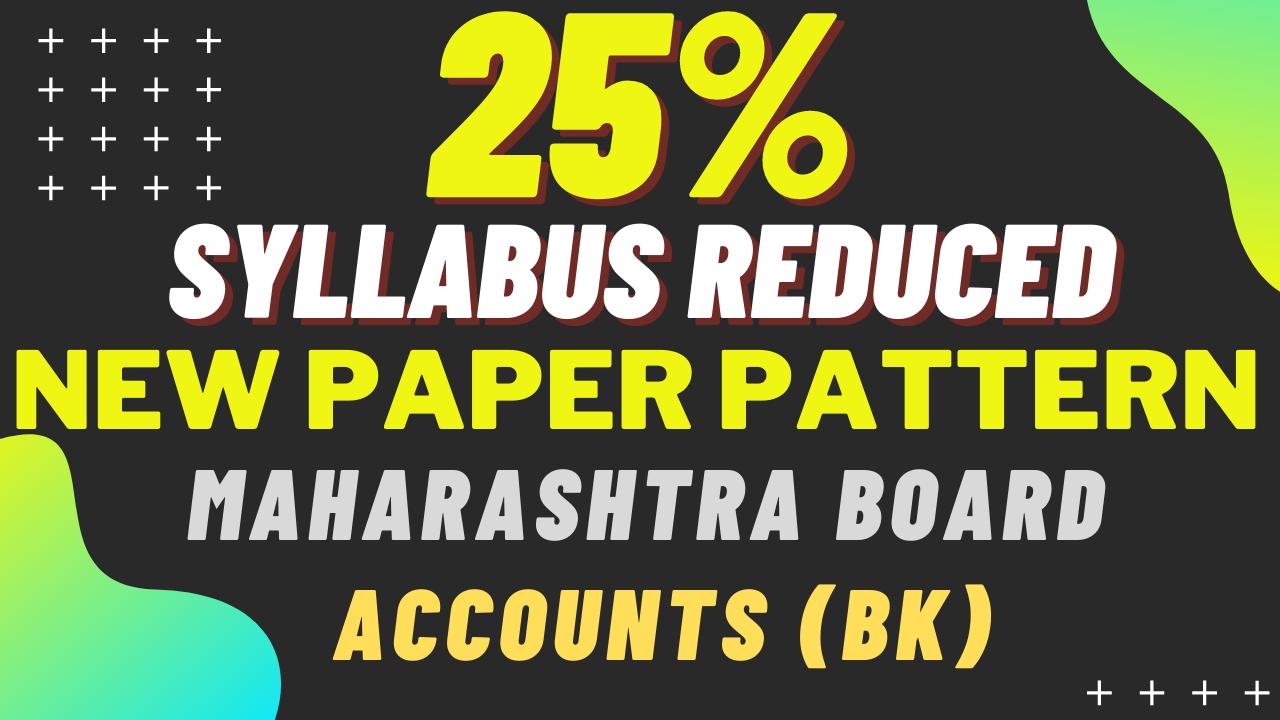Issue of Shares – Class 12 Maharashtra Board New Syllabus
Table of Contents
Issue of Shares
Definition of Shares:
A “share” has been defined by the Indian Companies Act, under sec.2(46) as “A share is the share in the Capital of the Company”.
TYPES OF SHARES:
A Company can issue two types of shares – Equity and Preference.
(a) Equity Shares:
Equity shares mean that part of the share capital which is not a Preference share capital. It means all such shares which are not Preference shares. Equity shares are also called as Ordinary Shares.
(b) Preference Shares:
Preference shares are those shares that fulfill both the following two conditions:
(i) They carry preferential share right in respect of dividend at a fixed rate,
(ii) They also carry preferential rights in regard to payment of capital on the winding up of the company.
PROCEDURE FOR ISSUE OF SHARES:
PROCEDURE
(a) Issue of Prospectus:
Whenever shares are to be issued to the public the company must issue a prospectus. Prospectus means an open invitation to the public to take up the shares of the company thus a private company needs not to issue a prospectus. Even a Public Company issuing its shares privately need not issue a prospectus. However, it is required to file a “Statement in lieu of Prospectus” with the register of companies. The Prospectus contains relevant information like names of Directors, terms of issue, etc. It also states the opening date of the subscription list, the amount payable on application, on allotment & the earliest closing date of the subscription list.
(b) Application of Shares:
A person intending to subscribe to the share capital of a company has to submit an application for shares in the prescribed form, to the company along with the application money before the last date of the subscription mentioned in the prospectus.
Over Subscription: If the no. of shares applied for is more than the no. of shares offered to the public then that is called as over Subscription.
Under Subscription: If the no. of shares applied for is less than the no. of shares offered to the public then it is called as Under Subscription.
(c) Allotment of Shares
After the last date of the receipt of applications is over, the Directors, Provide with the allotment work. However, a company cannot allot the shares unless the minimum subscription amount mentioned in the prospectus is collected within a stipulated period. The Directors pass a resolution in the board meeting for allotment of shares indicating clearly the class & no. of shares allotted with the distinctive numbers. Then Letters of Allotment are sent to the concerned applicants. Letters of Regret are sent to those who are not allotted any shares & application money is refunded to them.
Partial Allotment: In partial allotment, the company rejects some application totally refunds their application money & allots the shares to the remaining applicants.
Pro-rata Allotment: When a company makes a pro-rata allotment, it allots shares to all applicants but allots lesser shares then applied for E.g. If a person has applied for three hundred shares he may get two hundred shares.
(d) Calls on Shares: The remaining amount of shares may be collected in installments as laid down in the prospectus. Such installments are called calls on Shares. They may be termed as “Allotment amount, First Call, Second Call, etc.”
(e) Calls–in–Arrears: some shareholders may not pay the money due to them. The outstanding amounts are transferred to an account called up as “Calls-in-Arrears” account. The Balance of calls-in-arrears account is deducted from the Called-up capital in the Balance Sheet.
(f) Calls–in–Advance: According to sec.92 of the Companies Act, a Company may if so authorized by it‟s articles, accept from a shareholder either the whole or part of the amount remaining unpaid on any shares held by them, as Calls in advance. No dividend is paid on such calls in advance. However, interest has to be paid on such calls in advance.
TERMS OF ISSUE OF SHARES:
A limited company may issue the shares on the following different terms.
(a) Issue of Shares for Consideration other than cash or for cash or on capitalization of reserve
(b) Issue of Shares at par i.e. at face value or at nominal value.
(c) Issue of Shares at a Premium i.e. at more than face value.
(d) Issue of Shares at a Discount i.e. at less than the face value.
Issue of shares at a Premium:
When the shares are issued at a price higher than the nominal value of the shares then it is called as shares issued at a premium. The amount of premium is decided by the Board of Directors as per the guidelines issued by SEBI. Such share premium collected by the company is credited to a separate A/c called as “Securities Premium A/c”. Although Securities Premium is a profit to the company, it is not a revenue profit, it is treated as capital profit, which can be utilized only for the following purposes as per sec. 78 of the Companies Act –
(a) Issue of fully paid bonus shares to the existing shareholders.
(b) Writing off the preliminary expenses of the company.
(c) Writing off the expenses of issue or the commission paid or discount allowed on any issue of shares/debentures.
(d) Providing the premium payable on redemption of preference shares or debentures. The company can utilize the security Premium for any other purpose only on obtaining the
sanction of the court.
| Textbook Solutions of 12th Commerce (All Subjects) | Click Here |
| Free pdf of 12th Commerce Textbooks | Click Here |
| 12th Commerce IT MCQ Preparation (Online Test) | Click Here |
| 12th Commerce Paper Pattern and Chapter Wise Marks Distribution | Click Here |
| Sample Paper of 12th Commerce for Practice | Click Here |
| Solved Sample papers of 12th Commerce to improve Paper Presentation | Click Here |
Issue of shares at a discount:
The Companies Act permits issue of shares at a discount subject to the following conditions. (sec. 79)
(a) The issue must be of a class of shares already issued.
(b) Not less than 1 year has at the date of issue elapsed since the date on which the company became entitled to commence business.
(c) The issue at a discount is authorized by a resolution passed by the company in the general meeting & sanctioned by the company law board.
(d) The maximum rate of discount must not exceed 10% or such rate as the company law board may permit.
(e) The shares to be issued at a discount must be issued within two months of the sanction by the company law board or within such extended time as the company law board may allow.
JOURNAL ENTRIES
1) For the receipt of application money
| Bank A/c……………………………………………………….Dr. To Share Application A/c | XXX | XXX |
2) Transfer of Application money to Share Capital
Share Application A/c..………….. Dr. XXX
To Share Capital A/c XXX
3) Amount due to on Allotment
Share Allotment A/c………………Dr. XXX
To Share Capital A/c XXX
4) Receipt of Allotment money.
Bank A/c…………………………….Dr. XXX
To Share Allotment A/c XXX
5) For making the First Call
Share First Call A/c……………………..Dr. XXX
To Share Capital A/c XXX
6) For the receipt of First Call Money
Bank A/c…………………………………Dr. XXX
To Share First Call A/c XXX
7) For making the Second & Final Call
Share First Call A/c……………………..Dr. XXX
To Share Capital A/c XXX
8) For the receipt of Second & Final Call
Bank A/c…………………………………Dr. XXX
To Share First Call A/c XXX
Under, Over and Full Subscription
Under Subscription of shares
A company offers shares to the public inviting applications for their subscription. When the number of shares applied for by the public is less than the number of shares issued by the company, it is a situation of under-subscription.
Generally, a company that is newly set up or does not have a good reputation in the market receives under-subscription. Usually, such companies opt for the underwriting of the shares.
However, if a company receiving under-subscription receives the minimum subscription, it can allot the shares for which it receives the application.
Over subscription of shares
When a company receives applications for shares more than the number of shares it has offered to the public, it is known as over-subscription of shares. Usually, the companies with strong financial background or good reputation in the market or profitable future prospects receive over-subscription of shares.
According to the guidelines of SEBI, a company cannot out-rightly reject any application. However, it can do so where the information is incomplete, the signature is not there or the application money is insufficient.
Full subscription of shares
When a company receives applications for shares equal to the number of shares it has offered to the public, it is known as a Full subscription of shares.
What is forfeiture of shares?
Forfeiture of shares is a process where the company forfeits the shares of a member or shareholder who fails to pay the call on shares or installments of the issue price of his shares within a certain period of time after they fall due. In other words, when the shareholder fails to pay the full amount of share which he agreed to pay in installments the company can cancel his shares.
Legal Framework
When the shares are issued by the company, generally the shareholders are not asked to pay the whole amount of share at once. It happens in installments. The company makes these calls on shares when it requires further capital.
The company may call up the unpaid money from the shareholders when it is needed from time to time. The board of directors are required to pass a resolution for making a call on shares. The articles of the company should contain the provisions regarding this call on shares and if nothing is mentioned in the articles then Regulations 13-18 of table F of Schedule I of Companies Act, 2013, will apply.
Those provisions provide that
- the amount called must be not more than one-fourth of the face value of share;
- the dates of two consecutive calls must differ by at least a month;
- a minimum of fourteen days’ notice must be given to members;
- the notice has to mention the time, place, and amount of the call on shares.
Generally, the company will give 14 days’ notice to the shareholder and after 14 days if the shareholder is not willing to pay the money due to the company will forfeit the shares of that shareholder.


